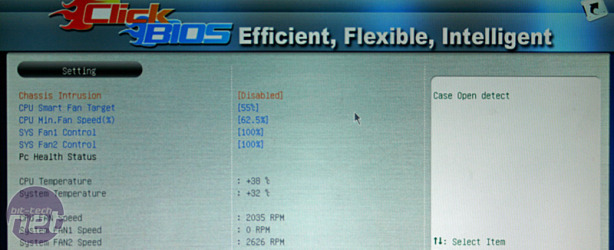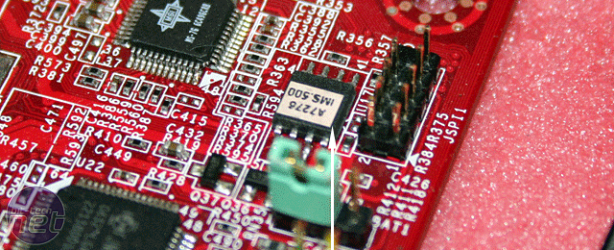Winning the UEFI cup
So what's the big deal? Why does implementing a UEFI system involve so much work, and does it really involve starting again from scratch?‘Yes,’ says Bristow, ‘I do mean redefining the restructure, developing the BIOS kernel and redeveloping all the existing Asus unique BIOS features, all from the very beginning. The UEFI BIOS is a completely different thing from the legacy BIOS which you see on modern PCs.’
According to Bristow, the differences between the two approaches are immense. ‘They're even developed and based on a different computing language, and behave in a completely different manner,’ he explains, likening the contrast to ‘the difference between a pure DOS and Windows platform.’
As well as this, any modules that Asus has worked on will not be backwardly compatible with UEFI, so every single feature will need to be developed again from the beginning.
What's more, once you've made your UEFI motherboard you then have the fun of testing every single feature to make sure it's stable and compatible with all the appropriate hardware. Plus, Bristow notes that ‘changes are essential to the existing production chain and after-service chain to cope with this change, due to the need to replace the existing test tools.’
The traditional BIOS may be a historical relic of computing, but it's been constantly refined and tweaked, particularly over the last few years, and decades' worth of work potentially stands to be lost in the switchover to UEFI. As Bristow points out, ‘due to the maturity of the newly born kernel, more resources are also needed to ensure the same level of compatibility when comparing with existing products based on the legacy BIOS.’
Asus currently doesn't have a schedule for the introduction of UEFI motherboards, but Bristow points maintains that ‘as the leader in the motherboard industry, there's no doubt that Asus holds the technology to move to 3TB support.’
In fact, other motherboard manufacturers have already dabbled with this potential usurper of the BIOS. One is MSI, which announced three Intel P45-based motherboards with a 32MB UEFI ROM a few years ago, which it refers to as its ClickBIOS system.
Speaking to bit-tech, MSI's Garrett Wu in Taiwan said that the company ‘plans to implement UEFI on whole new product series in the end of this year,’ as well.
In the meantime, Seagate says it plans to introduce its first disks that go beyond 2TB by the end of this year. This starts with an enterprise-level 3.5in drive, and Seagate reckons that this will involve fewer issues than a consumer desktop hard disk.
When it comes to consumer hard disks, Seagate's senior product marketing manager Barbara Craig explains that ‘there are more issues with the bootable aspects on more than 2TB.’ Although Craig was unable to tell us when we could expect a 3TB consumer hard disk, she said that ‘I do believe that it is a later release,’ compared with the enterprise drives.
However, even with the work that the industry has already done to ease the process of moving to larger hard drives, Craig says that there's roughly 20 per cent of the job still to be covered.
In terms of what this means for us, we can probably expect 3TB consumer-class hard disks to start appearing next year, by which time we're going to need to have gone beyond 32-bit operating systems, replaced the BIOS with UEFI and got a whole new collection of drivers. Can it be done? Yes, but we can certainly expect teething troubles.

MSI MPG Velox 100R Chassis Review
October 14 2021 | 15:04











Want to comment? Please log in.